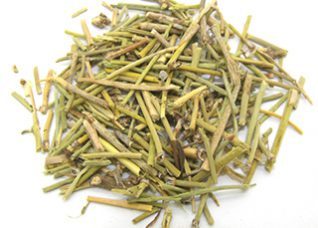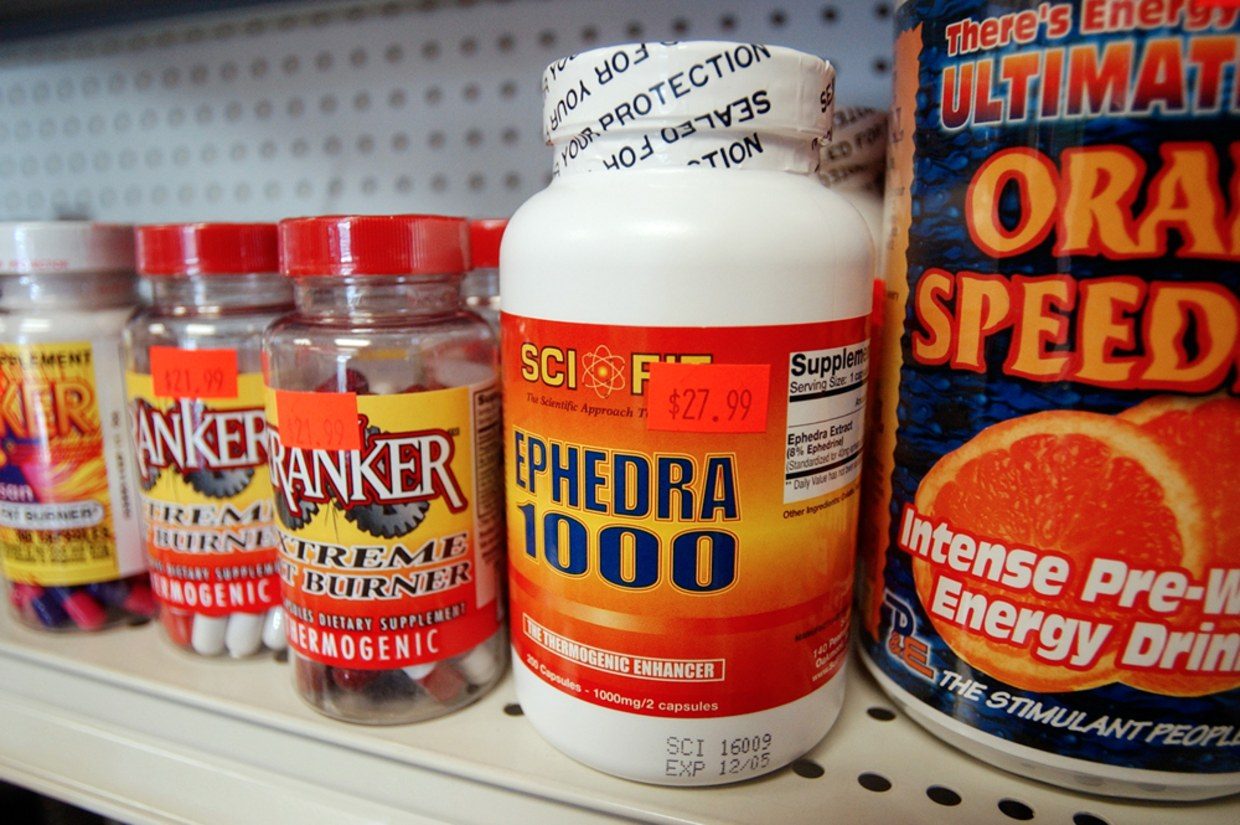“To paraphrase the ancient Roman poet Horace, the abuse of a substance does not weigh against its right or proper use.”
This quote from MR Lee, Emeritus Professor of Clinical Pharmacology and Therapeutics at the University of Edinburgh, basically says that we cannot place judgment on a medicinal substance’s harmful effects if the substance was not used properly.
This is the story of the Traditional Chinese medical substance known as Ma Huang (麻黄), it’s abuse outside of its traditional use, and the harm that such ignorance eventually caused.
Ma Huang in Traditional Medicine
For thousands of years, Ephedra sinica—known in Traditional Chinese Medicine (TCM) as Ma Huang (麻黄)—was treasured for its ability to “open the lungs and release the exterior.” In classical texts such as the Shang Han Lun, Ma Huang appears in famous formulas like Ma Huang Tang and Xiao Qing Long Tang, used to relieve wheezing, asthma, and the chills-and-fever pattern of the common cold. Properly prepared and prescribed, it was a reliable herb—warming, dispersing, and effective.

Japanese Traditional Medicine, with its roots in Traditional Chinese Medicine, uses plenty of TCM formulas. In fact, the Japanese term Kampo is the Japanese reading of Chinese characters meaning “Han prescriptions”. Han, of course, refers to ethnic Chinese. A 2013 study (link) even shows how integrated Kampo is in mainstream Japanese medicine
The study authors examined 67,113,579 records collected by Japan’s National Health Insurance program in 2009. Of these records, 1.34% are prescriptions for traditional herbal medicines.
Of the top ten formulas prescribed, two contain Ma Huang, namely Kakkōn‑tō (葛根湯 or Ge Gen Tang), and Sho‑seiryū‑tō (小青竜湯 or Xiao Qinglong Tang).
The Japanese obviously have no problems using Ma Huang.
Misuse of Ma Huang
In 1994, the Dietary Supplement Health and Education Act (DSHEA) was passed in the United States. Because of this, companies could sell herbal products without proving safety or efficacy first. I cannot help but notice a similarity with the situation in the Philippines where all someone has to do to hawk a product is to slap it with a “no approved therapeutic claims” label.
The result was frightening. Extracts rich in ephedrine and pseudoephedrine alkaloids became key ingredients in weight-loss and energy-boosting supplements. Marketed under names like “Herbal Ecstasy” or “ECA stack” (ephedrine + caffeine + aspirin), these pills promised quick fat-burning and enhanced athletic performance.
Ma Huang was never meant as a stimulant. It was never meant to be used long term. It was never meant to be used alone.
Are we therefore surprised when, because of this abuse, people started getting sick? High blood pressure, kidney failure, irregular heartbeats, even strokes – all because some unscrupulous hacks wanted to make a quick buck without respecting or even acknowledging the tradition from which Ma Huang came from.
Sadly, it all came to a climax in 2003 when Baltimore Orioles player Steve Bechler collapsed during training and died. His death was linked to ephedrine supplements.
The American FDA then banned ephedrine in supplements on February 11 of the next year.
In classical Chinese medicine, Ma Huang is rarely used alone, and never for long. It is balanced by other herbs, carefully matched to a patient’s constitution, and used for acute, not chronic, conditions. In contrast, the supplement industry turned it into a stimulant shortcut for weight loss and endurance—a misuse that transformed a healing herb into a public health hazard. Today, mention the word “ephedra” or “ephedrine” and well-meaning healthcare authorities become paralyzed with fear. During the COVID pandemic, a traditional formula Lianhua Qingwen was unjustly maligned and villified in my country because Ma Huang was one of its ingredients. Forget the fact that multiple studies have shown its efficacy and safety when used rightly. It’s association with Ma Huang was enough to condemn it.
Aftermath
Today, Ma Huang as used in traditional medicine is allowed in the United States as long as it is prescribed and dispensed by a qualified practitioner. In the Philippines, Lianhua Qingwen was allowed to market, but it faced constant attack despite being proven safe. I mean, Lianhua Qingwen is actually an OVER THE COUNTER medicine in every other country it was sold.
What can we learn from this?
In traditional medicine, context is medicine—herbs are not taken in isolation but as part of a pattern-based, holistic diagnosis.
In the supplement world, context was stripped away, leaving raw pharmacologic force without the balancing wisdom of classical formulation.
As Giovanni Maciocia reminds us in The Practice of Chinese Medicine:
“Herbs that move Qi or open the exterior are powerful. Their use must follow the diagnosis, not precede it.”
Powerful medicinals must be used properly. If anyone suffers from their misuse, blame the ignorant boor who promoted its misuse, not the medicinal itself.
Sources:
- U.S. Food and Drug Administration. (2004, February 11). Final Rule Declaring Dietary Supplements Containing Ephedrine Alkaloids Adulterated. Federal Register.
- National Center for Complementary and Integrative Health (NCCIH). (n.d.). Ephedra.https://www.nccih.nih.gov/health/ephedra
- Maciocia, G. (2015). The Foundations of Chinese Medicine (3rd ed.). Elsevier.
- Maciocia, G. (2017). The Practice of Chinese Medicine (3rd ed.). Elsevier.
- Katayama, K., Yoshino, T., Munakata, K., Yamaguchi, R., Imatani, T., Fukuda, S., & Takahashi, S. (2013). Prescription of Kampo drugs in the Japanese health care insurance program. Evidence-Based Complementary and Alternative Medicine, 2013, Article 576973. https://doi.org/10.1155/2013/576973
- Watanabe, K., et al. (2015). Current status of Kampo medicine prescriptions in Japan: Analysis of health-insurance data.Traditional & Kampo Medicine.
- Nature. (2004). Ephedra Ban Effective Immediately.
Dr. Tan-Gatue is a Doctor of Medicine, Certified Medical Acupuncturist and a Certified Traditional Chinese Medicine Practitioner.
He is currently a Clinical Assistant Professor at the University of the Philippines College of Medicine, Section Head of the Section of Herbology at the Department of Traditional Chinese Medicine of the Chinese General Hospital and Medical Center in Manila, and a member of the National Certification Committee on Traditional Chinese Medicine under the Philippine Institute of Traditional and Alternative Health Care under the Department of Health. He was just recently appointed Associate Editor-in-Chief of the World Chinese Medicine Journal (Philippine Edition) and elected to the Board of Trustees of the Philippine Academy of Acupuncture, Inc.
He can be reached at email@acupuncture.ph
Discover more from Acupuncture Manila Clinic of Philip Tan-Gatue, MD, CMA, CTCMP
Subscribe to get the latest posts sent to your email.

No responses yet